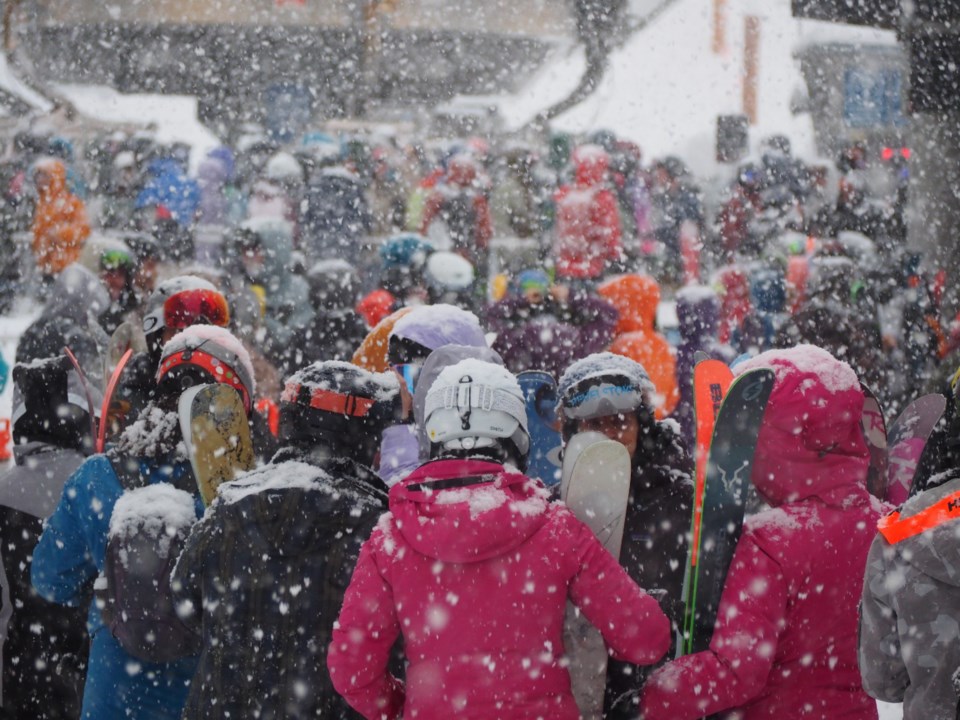Season pass sales for the upcoming North American ski season are lagging, according to a recent update from Whistler Blackcomb parent company Vail Resorts.
"Pass product sales through May 28, 2024 for the upcoming North American ski season decreased approximately five per cent in units and increased approximately one per cent in sales dollars as compared to the period in the prior year through May 30, 2023,” said Vail CEO, Kristen Lynch, in the .
In the report, Lynch went on to say the company believed the reduction was due to the poor 2023-24 season, which had limited sales opportunities to customers—and not due to the eight-per-cent price increase across Vail Resorts properties heading into 2024-25 compared to 2023-24.
“We believe the spring pass results for guests committing for winter 2024-25 were impacted by the industry decline in visitation following a record 2022-23 U.S. ski season,” she said.
“The decline in units relative to the prior year season to date results was primarily driven by a decline in new pass holders. The primary source of new pass holders in the spring are lift ticket guests that visited in the prior winter season. This past season, lift ticket visitation declined due to weather, and did not fully return to typical behaviour after conditions improved, creating a smaller audience as the primary source of new pass holders in the spring.”
That said, Lynch added Vail Resorts still has the bulk of a season to sell passes ahead of it.
“We believe the full year pass unit and sales dollar trends will be relatively stable with the spring results,” she said.
The dust is still settling on the varied 2023-24 season, which Vail Resorts reported as “unfavourable” for the majority of the season, before yielding improved results in March and April, when visitation across the company’s North American resorts rebounded—except at Whistler Blackcomb.
“While pass product visitation returned as expected, as we communicated in April, lift ticket visitation did not return to typical historical guest behaviour for the spring, primarily at Whistler Blackcomb, which was down significantly relative to the prior year period,” the report said.
Despite the challenges, Vail Resorts reported its net income for the quarter was $362 million, up from $325 million in the same quarter last year.
“Despite these challenges, [Vail] grew resort net revenue and Resort Reported EBITDA to record levels in the third quarter, supported by the stability created from our advance commitment strategy, operations executional excellence, and continued strong growth in ancillary spending per skier visit across our ski school, dining, and rental businesses at our resorts,” said Lynch.
“The winter season included significant weather-related challenges, with approximately 28 per cent lower snowfall for the full winter season across our western North American resorts compared to the same period in the prior year.”
Overall, the company reported the last ski season saw a 7.7-per-cent reduction in skier visits, driven by conditions and “broader industry normalization” following the COVID-19 pandemic.
However, despite the decline in skier visits, the company reported “ancillary spending was strong,” with guests opening wallets across ski school, dining and rental businesses across Vail Resorts properties.
“Resort net revenue for the second and third quarter combined period increased one per cent and Resort Reported EBITDA increased six per cent over the prior year,” the report said.
Looking ahead, the company has updated its guidances for the year ending July 31, reporting its expected EBITDA for the year to be between $825-$845 million, compared to the previous quarterly guidance that expected the range to be between $847-$889 million.
“The reduction relative to the guidance provided on March 11, 2024 () is primarily from lift ticket visitation not returning to typical historical spring behaviour as expected in the March and April period, primarily at Whistler Blackcomb, along with lowered expectations for the fourth quarter of $9 million primarily related to the demand outlook for our Australian resorts,” said Lynch.
You can read on its corporate website.




